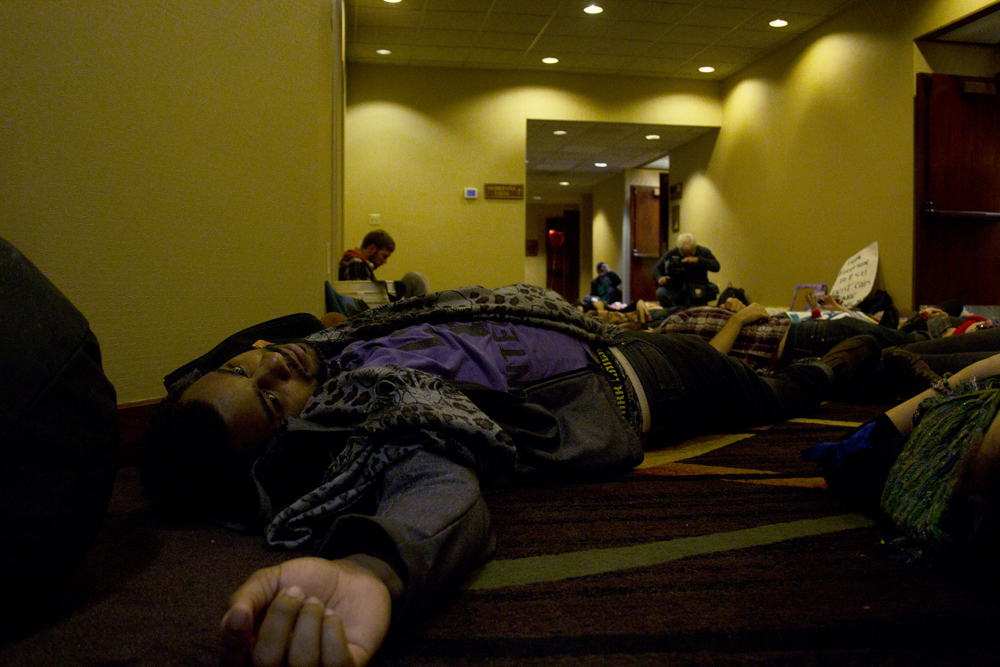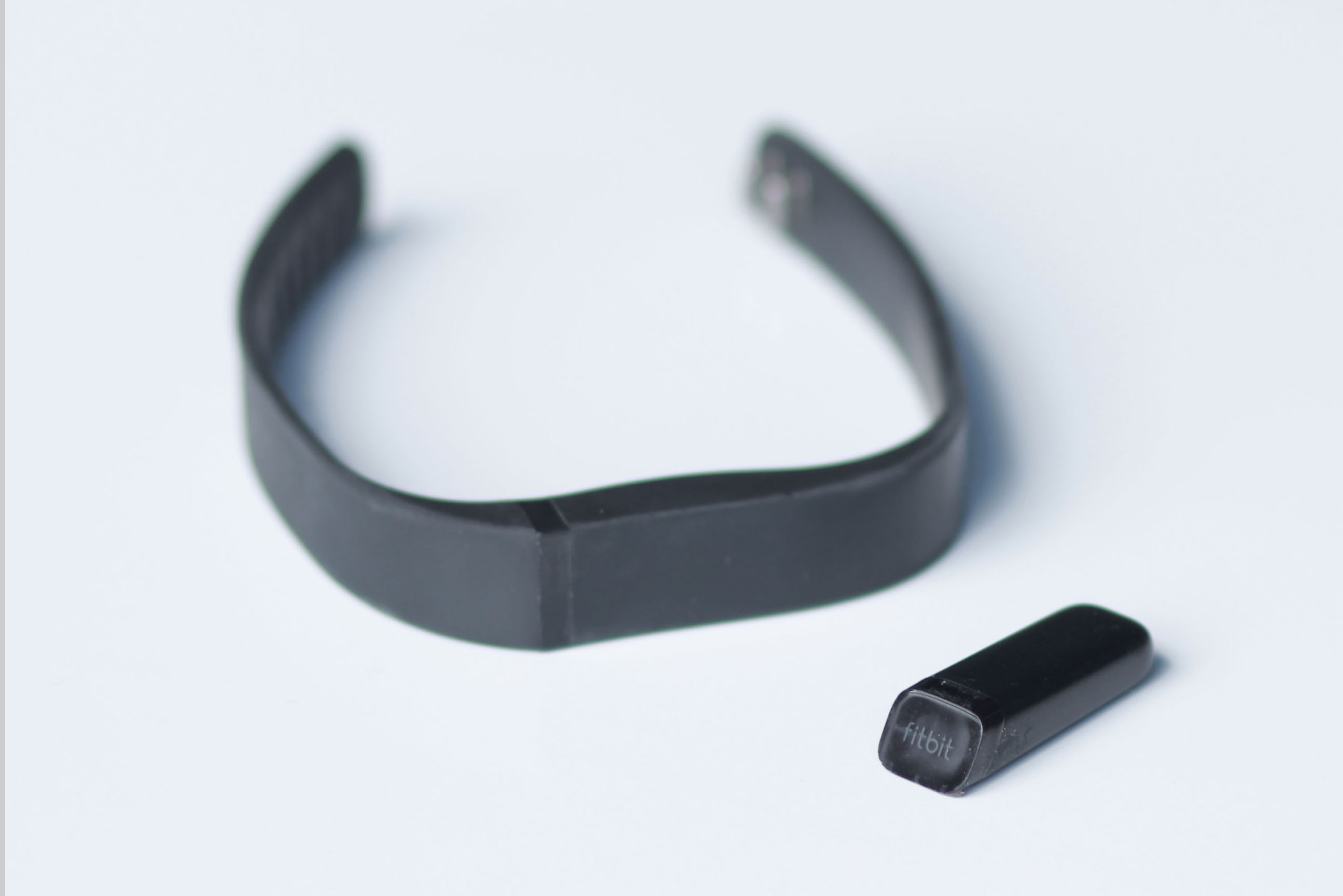On Dec. 11 the Board of Trustees voted 11–2 to approve a resolution that will turn Portland State campus public safety officers into a sworn and armed police force. The vote came despite opposition from some students, staff and faculty.
The resolution allows candidate recruitment for a sworn force to begin immediately. The vote took place at the University Place Hotel.
During the vote, Public Safety Commitee Chair Tom Imeson proposed an amendment to withhold deployment of the armed officers until after the board meeting on June 11. It passed unanimously.
Trustee Maude Hines, who voted against the resolution, proposed another amendment to withhold firearms authorization entirely until the June meeting. It failed 4–9.
Hines had pointed out that there was insufficient data on the impact that armed police have on campuses.
Some who opposed Hines’ amendment were concerned that prolonging the firearms decision would perpetuate the debate, which they described as an excruciating environment.
President Wim Wiewel said that he had initially been skeptical of the decision to transition to a sworn police force. Wiewel said it was the Task Force on Campus Safety that ultimately changed his mind.
“I did not like the idea of spending more money or having sworn and armed police officers on campus, but that report made a very strong case…There are a lot of things a public safety officer cannot do and that a sworn police officer can do,” Wiewel said.
Now that the proposal has been approved, Chief of Campus Public Safety Phillip Zerzan said PSU’s safety department is tasked with taking careful steps to ensure extensive training for sworn officers on campus.
“All of the campus public safety has a certain level of training,” Zerzan said. “There are some officers that are former police officers that work here that just have to reactivate their certification, and there are other officers that will have to be hired and there will be other officers that have to go through academy training.”
Protests and public comments
Hours before the Dec. 11 board meeting, a rally against the proposal convened in the PSU Park Blocks. Speaking through a megaphone, student and PSU Student Union member Leona Kindermann criticized university administration for not taking student engagement seriously.
“The people at the top making the decisions are so disconnected they don’t understand what this really means to us. They don’t get that if this decision goes through, we’re the ones who are going to have to live with it on the grounds here every single day,” Kindermann added.
From the Park Blocks, protesters marched to the University Place Hotel where they staged a “die-in.” Those attending the meeting stepped over the bodies of students. Despite the demonstration, the board meeting convened as planned.
Chairman of the board Pete Nickerson said that the order of the docket was different from other board meetings, which usually save a 30-minute public comment period for the end of the meeting.
“The executive committee thought that in light of the very weighty issue on the agenda that we should have public comment before,” Nickerson said.
Nickerson added that this change had resulted in some confusion among the community about how to sign up to participate in the public comment period.
During the public comment section, Marc Nisenfeld, a technologist in the PSU physics department, asked the board to pass the measure, though he had originally opposed it.
Nisenfeld said that an increase of violent crimes—in particular, sexual assault— perpetuated by non-students on campus has impacted officers not only in their ability to protect students, but also to protect themselves.
“[Officers] are being physically attacked; they’re spit on, they’re vomited on, they’re urinated on and worse. I began to see a need to empower our CPSO as they have no tools for which to deal this abuse. They can’t charge someone for assaulting an officer, because they’re not officers. Nor can they compel someone to seek mental health treatment,” Nisenfeld said.
Melinda Joy, an administrative liaison for Students Active for Ending Rape at PSU, commented on how this decision might affect sexual assault on campus.
“No one has looked at how this will actually affect sexual assault. Research shows that students do not report to the police. You’re going to lower reporting rates by allowing police to come in here, and everyone stands up and says they know this is going to be helpful to sexual assault survivors. It is not going to be helpful,” Joy said.
Wiewel cited a sexual assault case where it took three days for the Portland police to respond. “Having our public safety officers being able, by becoming sworn officers, to both pursue [cases like this one] and then to go off-campus to deal with it…I thought it was very important for them to do,” Wiewel said.
Chris Fischer, both a student and a campus public safety officer, emphasized that the passage of the proposal would afford him and his colleagues safety in an unpredictable environment and would ultimately benefit students.
“Often times I am alone and unarmed when I deal with these dangerous offenders. These aren’t periodic moments of danger, but a reality of the environment that all campus public safety officers are faced with,” Fischer said.
“I do so willingly and because I believe in the university and its mission. I want everyone to be safe. I want the university to be policed by others who are a part of the university and will return to the campus every day, helping students, engaging those who are in need and able to respond to the real threats in the community,” Fischer continued.
Moving forward
“You won’t see [sworn officers] deployed on campus until after July of 2015,” Zerzan said. “There’s an implementation committee that will be looking at how we’re going to be implementing it—where policies and procedures are—then we go back to the board prior to actually deploying the officers.”
The board still has to approve a final resolution on policy and procedures for sworn officers at the June 11 board meeting before deployment begins.
In the six months between, an implementation advisory committee will begin discussions intended to get students more involved in the implementation of the resolution.
Officers will receive training that complies with state requirements—similar to training that the Portland Police Bureau goes through. They will also receive additional training to be determined by the committee.
When asked about the hierarchal structure between the forthcoming PSU Police Department and the PPB, Zerzan said, “They will be completely separate entities, and what we will develop is a memorandum of understanding which gives us primary jurisdiction over the campus, and that will be signed and agreed to by both parties. We don’t answer to the [PPB]. We’re a separate institution that answers to the university, and that already exists and will continue to exist.”
Zerzan added that campus officer jurisdiction is a recognition that campus police are unique.
“Policing [PSU]should be something that is accountable and is reflective of the values and mission of university,” Zerzan said. “We are a community within a community. It’s what Thomas Jefferson called ‘the academic village.’ So, we want to have a police department that is reflective of that mission and also the fact that we are kind of a separate community.”
President of Associated Students of PSU Eric Noll spoke on the level of student involvement in this process.
“When it comes to the development of the process from the very beginning, from when the original task force was started, the overall student body has not been involved in the process in the way they should’ve been,” Noll said. “Moving forward, it’s our hope to work with the implementation advisory committee to make students more a part of the implementation.”
Noll explained that he and Rayleen McMillian, ASPSU vice president, are charged with recommending students to sit on the implementation advisory committee that would report to the president’s office and work directly with CPSO. He added that the vision of student involvement wasn’t entirely clear.
“Honestly, I don’t know what student involvement is going to look like moving forward until we have a chance to consult with other members of the committee and what they want to see, but it will be our role to come into that space and try to open it up as much as possible to the student body,” Noll said.
Noll said that there was definitive consideration of community opinion that went into the resolution.
“Whether it was visual or not, what was said in forums and what was said by the students who testified at the hearings and who engaged throughout the last four months really was heard by the folks in the decision-making seats. Maybe not all of them, but enough of them,” Noll said.
“The first resolution we saw was fairly bare bones and vague, and after having a chance to engage it and talk with board members in a meaningful way—with decision-makers in a meaningful way—we were able to get the resolution to a place where, while going against the wishes of the protesters in this case, sets us up to have a much more inclusive process,” he added.
In addition to the implementation committee, a permanent oversight committee will be established. The committee will likely include students, faculty and staff and will be in charge of receiving and responding to any complaints. This is meant to ensure accountability for campus officers.
Noll further emphasized that students will make the most difference by engaging with the advisory committee in the implementation process. He suggested that protesters may still have some hope in preventing weapons on campus.
“We have an opportunity through this implementation committee to say, ‘OK, this is where the Board wants us to go—now how do we do this right?’ So I think we need to be looking at it with that lens moving forward to make the most out of the implementation advisory committee’s recommendations, but that doesn’t in any way exclude, at the same time, conversations about alternatives,” Noll said.
Training and implementation
The board, Wiewel said, wants to see the implementation plan before anything goes into effect.
“We will do it gradually. We can only train so many people at a time,” he said. “We can only hire so many people at a time. We kind of want to see how it works. We don’t want to spend anymore money than what is absolutely necessary.”
Wiewel said that he doesn’t think that he will be involved in the training process. While he might give a brief talk, the process will be determined by the implementation advisory committee.
Wiewel said that the committee can look to other universities’ policies and procedures. “We don’t have to invent this wheel,” he said.
According to the Campus Safety FAQ, in addition to complying with state requirements for certification, PSU’s officers will receive six months of PSU-specific training including “CPR, mulitcultural competency, de-escalation techniques and federal reporting mandates.”
The force’s training is meant to support and maintain PSU’s unique environment, the FAQ stated.
“So, you have the academy, then you have six months of follow-up training and then in-service training,” Zerzan said. “Part of the attractiveness of this proposal is we as a university get to decide what that training will look like—what areas are of specific importance to us. Areas that were mentioned were: cultural competency, dealing with the mentally ill, de-escalation techniques. Those are all things that will be incorporated to enter our own training program.”
Additional reporting by Jaime Dunkle.






